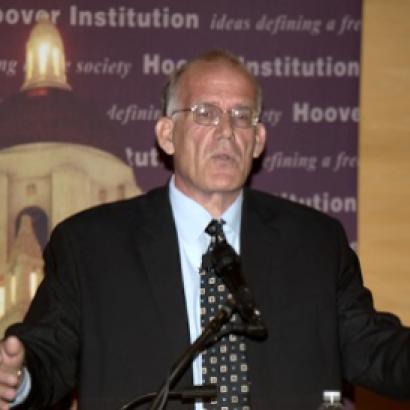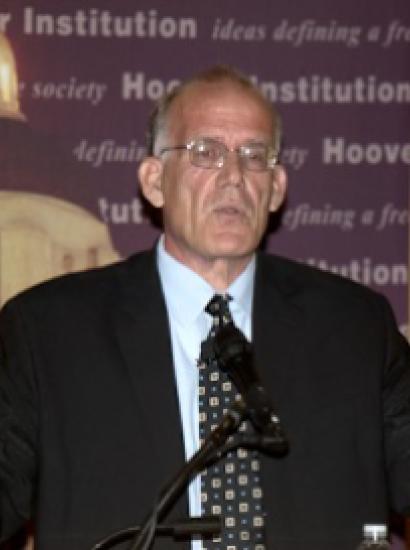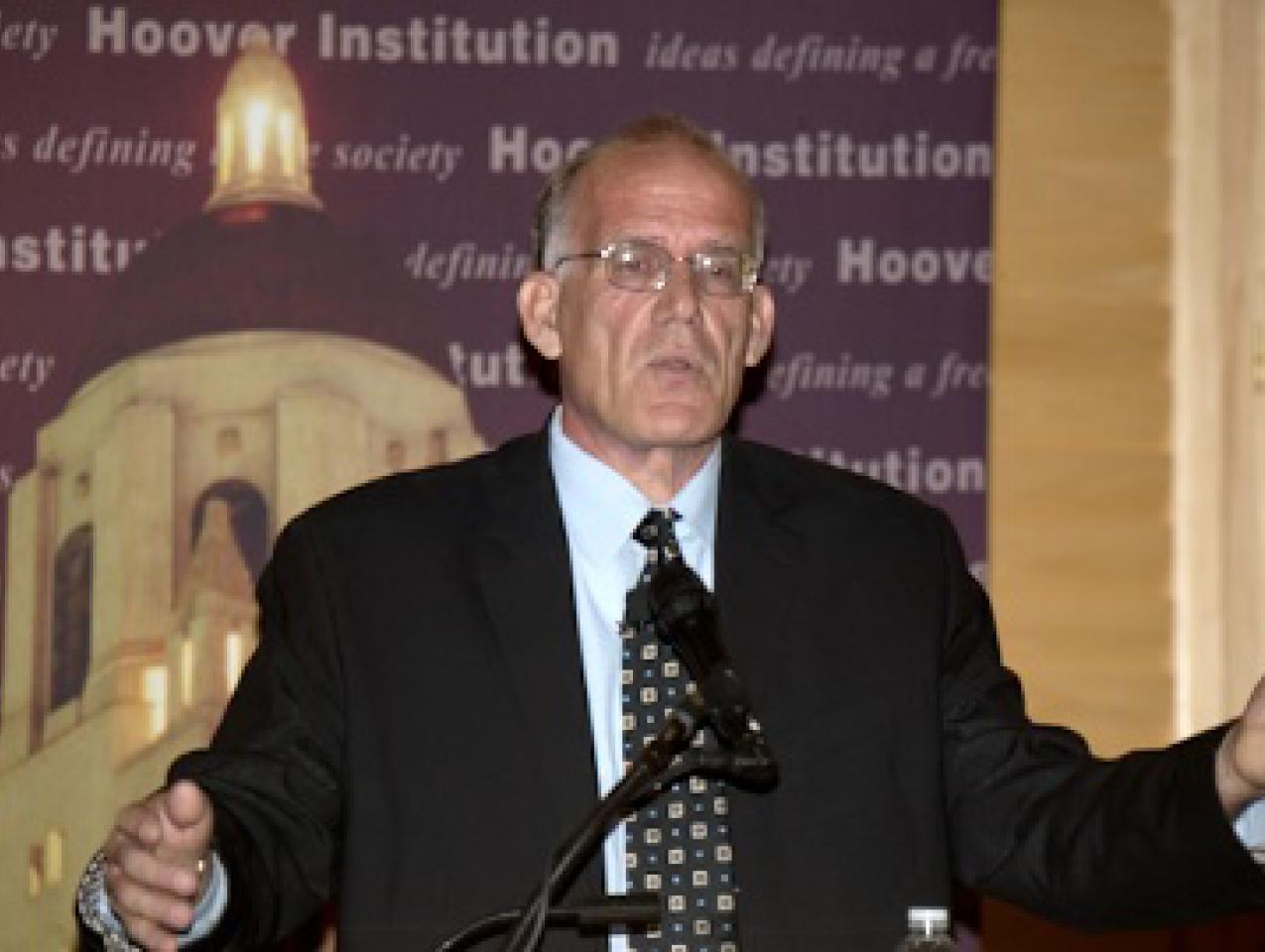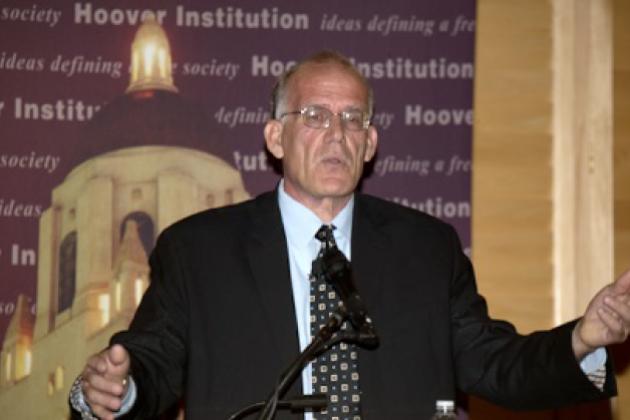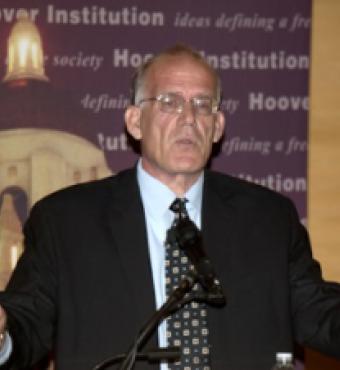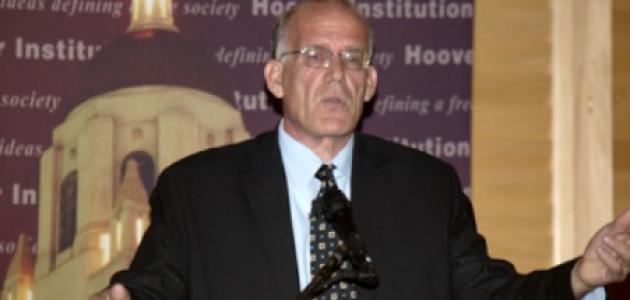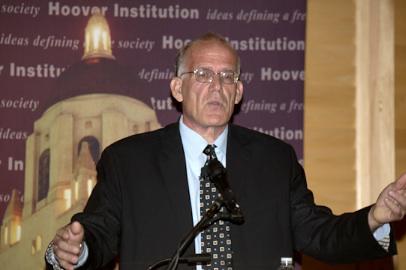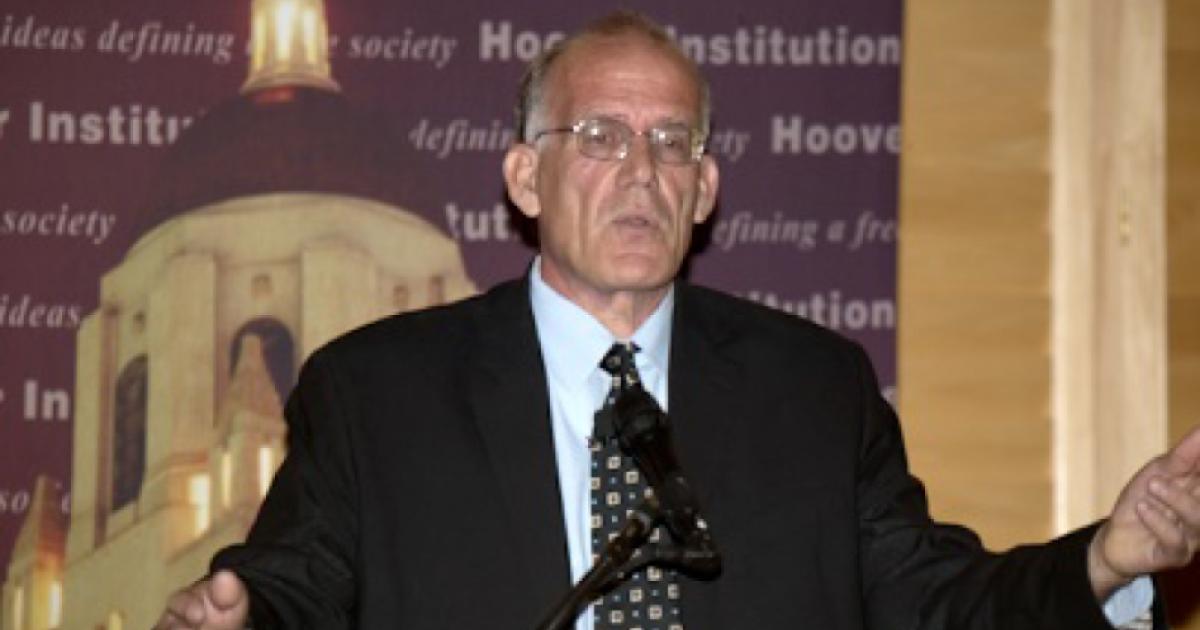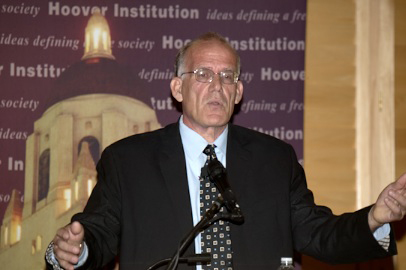
Hoover Institution’s 42nd retreat on November 18 and 19 featured a diverse collection of presentations given by leading experts. Hoover fellow John Taylor analyzed the role of government in the financial crisis, Hoover fellow Fouad Ajami discussed Muslims, and other leading scholars discussed presidential administrations, history and culture of the United States, and health care reform.
Financial Crisis
Muslims
Presidential Administrations
U.S. History and Culture
Health Care Reform
Victor Davis Hanson, the Martin and Illie Anderson Senior Fellow at the Hoover Institution, gave before–dinner remarks on November 18 titled “America at War or Peace?—What Happens When the Postmodern West Meets Its Premodern Enemies?” “The more wealthy a country is, the less willing its people are to fight,” said Hanson.
In his opening remarks, John Raisian, the Tad and Dianne Taube Director at the Hoover Institution, reviewed the task forces and working groups underway at the Hoover Institution. Convening groups of scholars is a new approach to academic research that has been working well, said Raisian. In addition to the Task Force on K–12 Education, he noted that there are nine new task forces and working groups in progress, including Energy; National and Global Economic Markets; Critical Junctures in American Government and Politics; History, Health Care; Islamism and International Order; National Security and Law; Property Rights, Freedom, and Prosperity; and Virtues of a Free Society.
Financial Crisis
“The Role of Government in the Panic of 2008” was discussed by John Taylor, the Bowen H. and Janice Arthur McCoy Senior Fellow at the Hoover Institution and chair of the Hoover working group National and Global Economic Markets, and Stanford economist. Taylor, who published one of the first books on the crisis, Getting Off Track (Hoover Press, 2009) reviewed his findings that low interest rates, problematic banks, and government intervention led to the financial crisis. He noted that there is no debate around the current financial reform bill under consideration. In addressing the financial crisis, Taylor advises, “we need to understand what happened to determine what to do.”
Muslims
“Islam is not necessarily an Arab religion,” said Fouad Ajami, a Hoover senior fellow and professor and director of the Middle East Studies Program at Johns Hopkins University, in his presentation “War Is God’s Way of Teaching Americans Geography: Osama’s Islamic Tutorial.” Drawing on a survey by Pew Research Center’s Forum on Religion & Public Life, Mapping the Global Muslim Population, October 2009, Ajami pointed out that most Muslims — 972,537,000 — live in Asia. The Middle East has 315,322,000 Muslims, Sub-Saharan Africa has 240,632,000 Muslims, Europe has 38,112,000, and there are 4,596,000 Muslims in the Americas.
Presidential Administrations
In his presentation, “Links and Voids: FDR’s New Deal, LBJ’s Great Society, and Obama’s New Foundation,” Morton Keller, professor of history emeritus at Brandeis University and a member of the Hoover working group Critical Junctures in American Government and Politics, compared the achievements of President Barack Obama and his administration with past presidents Franklin Delano Roosevelt and Lyndon B. Johnson and their administrations. Keller said that in the first 10 months of Roosevelt’s administration he had passed 15 programs and at the same point in the Johnson administration Congress had approved 84 of 87 bills submitted to it. Of past presidents, Keller believes Obama is “most similar to Carter.”
U.S. History and Culture
Hoover fellow Kenneth Jowitt and Paul Rahe discussed the history and culture of the United States in their presentations.
“America differs radically from the rest of the world and even Europe,” said Jowitt, the Pres and Maurine Hotchkis Senior Fellow at the Hoover Institution, in his presentation “George Washington, American Exceptionalism, and Foreign Policy.” Citing the way Americans identify themselves as individuals, whereas the rest of the world engages in group identity which creates two critical consequences. The first is that Americans are uncomfortable in the world and the other consequence is that the American way of life is unintelligible to the rest of the world, said Jowitt.
Paul Rahe, in his presentation “Soft Despotism, Democracy’s Drift,” warned that “local autonomy has been giving ground to federal control,” said Rahe who holds the Charles O. Lee and Louise K. Lee Chair in Western Heritage at Hillsdale College, where he is a professor of history and politics. The difference between the Republican and Democratic parties approach to federal control, Rahe said, is the pace.
Health Care Reform
In the panel discussion “Health Care Reform: What Benefits Can We Expect and What Will It Cost?” participants discussed the problem and possible solutions to health care reform. Disputing the claim that the problem is the number of uninsured, which varies, but rather the costs of health care, the panelists pointed out that funding for universal health care would increase by 20 percent for most households. In addition, they pointed out those essential features of the proposed health care reform, such as a mandate to buy, address coverage, but do not contain costs.
John Cogan, Leonard and Shirley Ely Senior Fellow at the Hoover Institution and a professor in Stanford’s Public Policy Program, Daniel Kessler, senior fellow at the Hoover Institution and a professor at the Stanford Law School, and Mark Pauly, professor at the Wharton School of the University of Pennsylvania, served as panelists. John Raisian, the Tad and Dianne Taube Director at the Hoover Institution, moderated the discussion.
For information about future retreats, please contact the director of development Don Meyer at donmeyer@stanford.edu.







